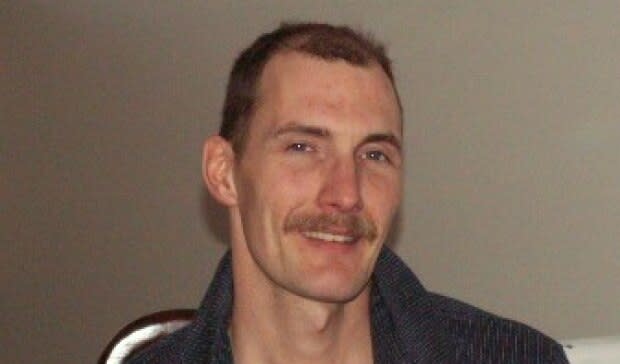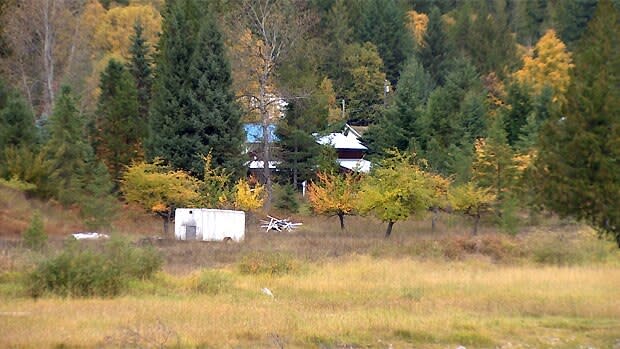Family of Peter de Groot still looking for explanation for deadly RCMP shooting, 5 years later
Five years after RCMP shot dead her brother at a secluded cabin in southeastern B.C., the list of questions Danna de Groot wants answered about the shooting takes nearly three minutes to read aloud.
There's more than a dozen of them. Some are seemingly straightforward, like wanting to know whether or not Peter de Groot was shot in the back. Others are more complicated.
Peter de Groot was shot and killed by RCMP near Slocan, B.C., on Oct. 14, 2014. Mounties had been searching for him for four days, after he exchanged gunfire with Mounties and fled into the woods.
The 45-year-old, described by his family as an accomplished PhD candidate who had suffered a disabling brain aneurysm, was ultimately found alone in a cabin.

RCMP said an officer shot and killed Peter de Groot after he pointed a rifle at them.
The province's police watchdog investigated the shooting and cleared that officer of any wrongdoing. A final report, which took nearly four years to compile, said the officer responded to the situation by the book.
Danna de Groot said officers overreacted with a disproportionate amount of deadly force after cornering her brother in the remote cabin. She also said her family still does not understand basic facts of the events that led to the manhunt, and those that unfolded once it came to an end.
"It's now five years to the day that our brother was, in our opinion, wrongly killed," Danna de Groot told reporters in a phone call Monday. "There are still many outstanding questions for us that have not been answered in the last five years."

Danna de Groot said the report from the police watchdog, the Independent Investigations Office of B.C., still did not give the family the "evidence-supported" story of what happened to her brother.
She also said it is not clear why RCMP were called to his home in the first place, why he ran into the woods and why RCMP described him in the early hours of the manhunt "as being dangerously ill, rather than a highly educated person who had suffered a brain aneurysm."
"The complete and utter violation of human rights that our brother's death entails has caused great suffering and damage to the people that loved and cared for him," Danna de Groot said, after reading aloud her list of 14 questions for the force.
The family, she said, also does not understand why an officer who alleged he suffered from post-traumatic stress disorder (PTSD) was assigned to the search for Peter in 2014.
RCMP Cpl. Brian Burke has said he was previously diagnosed with PTSD before the shooting. Burke is suing the police watchdog over its delayed investigation into Peter de Groot's death, claiming he had a relapse of PTSD related to the "uncertainty" he faced waiting for the investigation to finish.
An RCMP spokesperson said it's unlikely they would be able to respond to Danna de Groot's statement until Tuesday.
A coroner's inquest into the death is set to be scheduled for spring 2020, according to his sister. The de Groot family has been granted participant status for the inquest, which means they may have a lawyer present evidence and question witnesses on its behalf.
The de Groot family filed a civil lawsuit against the RCMP in 2016. That case is on hold until the coroner's inquest is complete.


